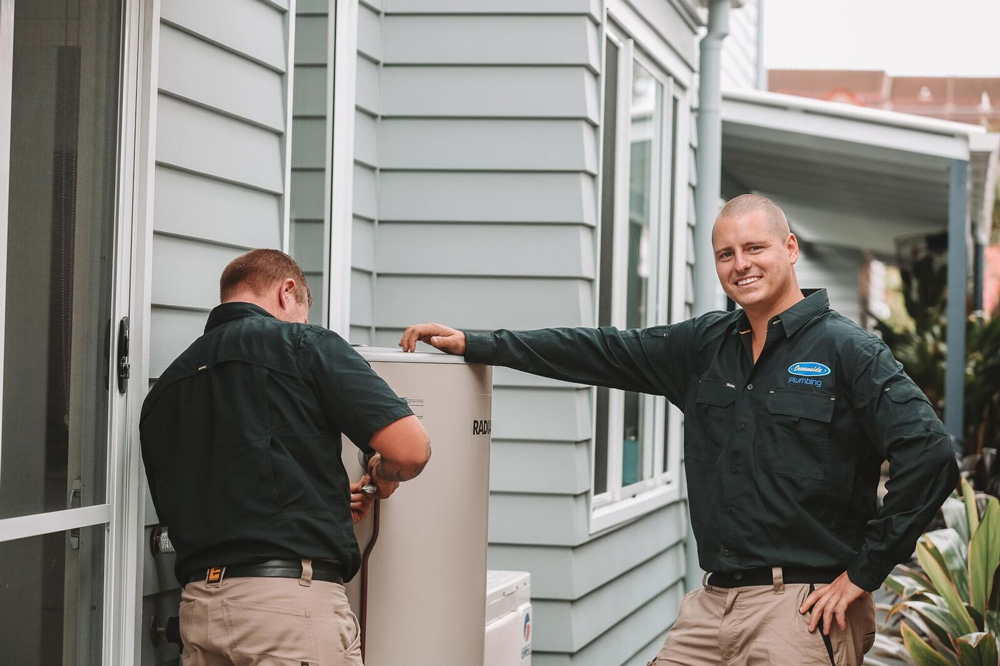A well-functioning hot water system isn’t just a comfort—it’s a necessity in every home or rental property. From morning showers to cleaning the dishes, hot water supports daily routines that most of us wouldn’t want to go without. But just like any other appliance, hot water systems on the Gold Coast require care and maintenance to keep them running efficiently for years. You may face reduced performance, higher energy bills, or a complete system breakdown without proper upkeep.
Whether you’re a homeowner or a property manager, these essential tips will help you extend the lifespan of your hot water system and avoid costly issues down the line. From regular servicing to simple preventive measures, here’s what you need to know to keep your hot water flowing efficiently and reliably.
1. Flush your Hot Water System Regularly to Prevent Sediment Build-up
Over time, minerals from your water supply can accumulate at the bottom of your tank, forming sediment that compromises heating efficiency. This build-up can reduce the tank’s storage capacity, cause noisy operation, and strain the system to the point of early failure.
To address this, professionals recommend regular flushing. A qualified plumber can carry this out as part of scheduled servicing. By removing built-up sediment, you’ll ensure your system heats faster and operates more economically.
Benefits of regular flushing include:
- Improved energy efficiency
- Longer system lifespan
- Reduced risk of overheating or corrosion
- Quieter operation
2. Check for Leaks Before They Become Costly Problemsecialisation
A minor leak might seem harmless, but it can be a symptom of underlying issues such as corrosion, worn-out valves or cracked seals. These leaks can escalate into structural damage or even complete system failure if ignored.
Early leak detection is critical. If you notice moisture around the base of your unit, fluctuating water pressure, or unusually high water bills, it’s time to contact a licensed technician for a thorough inspection.
Key leak indicators to watch for:
- Puddles or rust near the base of the tank
- Drops in water pressure during use
- Unexplained increases in water consumption
- Discoloured or metallic-smelling water
3. Clean filters & Valves to Maintain a Steady Water Flow
Filters and pressure relief valves are essential components that ensure your hot water system operates safely and consistently. Over time, dirt, mineral deposits and debris can accumulate in these areas, restricting flow and increasing pressure within the system.
A professional service includes cleaning or replacing these components to prevent internal damage and help the system function at its best.
Typical components that require cleaning include:
- Inlet filters (especially in areas with hard water)
- Pressure and temperature relief (PTR) valves
- In-line strainers or screens on modern systems
4. Insulate Your Water Pipes to Reduce Heat Loss
Even the most efficient hot water systems can waste energy through uninsulated pipes. Heat escapes as hot water travels from the tank to the tap—particularly in colder months or homes with long pipe runs. This means your system works harder to maintain temperature.
Pipe insulation helps minimise this heat loss, improves energy efficiency and ensures water stays hot by the time it reaches your fixtures. It’s a straightforward enhancement often handled during installation or retrofitted during maintenance visits.
Why insulation is important:
- Conserves energy by reducing heat transfer
- Reduces waiting time for hot water at taps
- Lowers energy bills over time
- Helps prevent pipe freezing in cooler climates
5. Know the Ideal Temperature Setting for Performance & Safety
Hot water systems set too high waste energy and increase the risk of scalding, while systems set too low may foster bacterial growth. Most systems should be set to a safe storage temperature but require tempering valves to deliver cooler water to outlets.
This balance is crucial for both safety and performance. An experienced technician can check your system’s thermostat and adjust it in line with regulatory standards.
Key points to consider:
- Water should be stored at 60°C to kill bacteria
- Tempering valves reduce delivery temperature to 50°C or less for household use
- Professional calibration ensures compliance and system efficiency
6. Schedule Routine Professional Servicing to Extend System Lifespan
Like any household system, preventative maintenance is the best defence against unexpected breakdowns. Regular servicing by a licensed plumber ensures potential issues are identified early before they become costly repairs or replacements.
Professional servicing is especially important for older systems and those used in higher-demand multi-residential properties.
Typical service checks include:
- Inspecting anodes & replacing them if corroded
- Testing thermostat accuracy & safety devices
- Checking for leaks, corrosion or scale build-up
- Cleaning filters & flushing the tank if needed
- Ensuring compliance with safety standards
7. Replace Worn-Out Parts Before They Fail Completely
Hot water systems rely on a few key parts to function properly; over time, these can deteriorate. Proactively replacing parts like sacrificial anodes, heating elements, or thermostats extends your system’s performance and prevents more severe failures.
If your hot water is taking longer to heat, seems inconsistent, or you’re hearing rumbling sounds from the tank, it could be time to look into component replacement.
Commonly replaced parts include:
- Anode rods: Help prevent tank corrosion
- Thermostats: Ensure water is heated to the correct temperature
- Heating elements: Particularly in electric storage systems
- Pressure valves: Maintain safe operating pressure levels
8. Understand the Lifespan of Your System & Plan Ahead
All hot water systems have a finite lifespan. While some may last up to 15 years or more with maintenance, others show signs of wear much sooner. Knowing the age of your system and understanding its typical lifespan will help you budget and plan for future upgrades before an emergency occurs.
The average lifespan of standard hot water systems:
- Electric storage systems: 8–12 years
- Gas storage systems: 8–12 years
- Continuous flow systems: 10–15 years
- Solar hot water systems: 10–20 years
When nearing the end of its lifespan, consider speaking with a qualified installer about your upgrade options, including more energy-efficient systems suited to your household needs.
Need Reliable Hot Water on the Gold Coast? Let’s Talk
At Oceanside Services, we understand that a reliable hot water system is essential for every home. Whether you need a new hot water installation, help with hot water repairs on the Gold Coast, or want to schedule a professional service to maximise the lifespan of your system, our fully licensed team is ready to help.
Contact us today to book a service or hot water installation on the Gold Coast. Let us help you avoid potential issues and keep the hot water flowing every day of the year.



 5 Star Service
5 Star Service 







